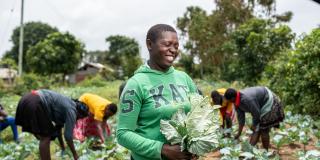
VSO has built the capacity of groups on climate resilient agriculture by promoting agroecological farming practices and the use of green energy for irrigation. This is fundamental in environmental conservation as it reduces the carbon footprint of the individual farmers and enhances their control of food access, agricultural inputs and water for irrigation.
Victoria Young Women Group
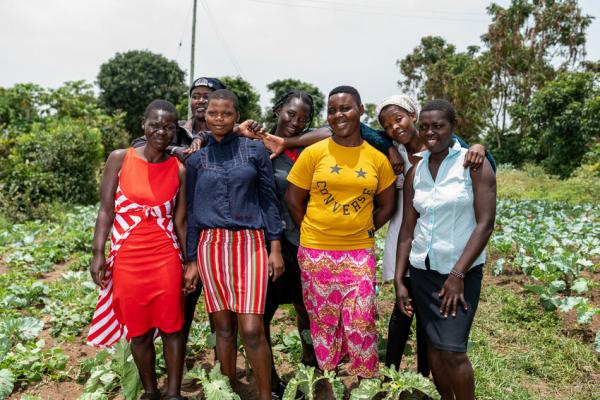
This is Victoria Young women group in Rarieda Subcounty. We are 18 members, and all are women aged 18-35 years old. COVID-19 has led to lack of money circulation and business is not doing well. Prices in the market have gone up and most of the commodities are not affordable to us. Some of us lost the casual jobs we were doing before.
There has been a long drought and low rainfall making farming difficult in the area. Going for water in the lake regularly is hard. This has made living standards hard and we cannot afford to provide a balanced diet to our children and those of us who are HIV+.
We have adopted smart faming to adapt to climate change and improve our living standards and improve our nutritional needs. The group’s income has also improved through sales of the farm produce. We use local materials for pest control and manure.
Greenlink Women's Group
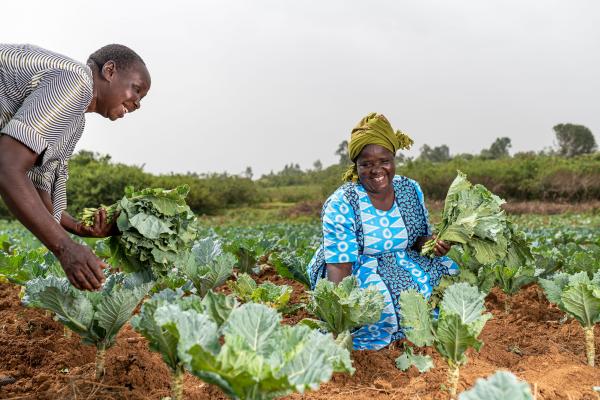
This is Greenlink Women Group, an intergenerational group consisting of members of a range of ages. All the members are treated the same regardless of age because anybody can have a good idea that can carry the group forward.
The older women play more of consultancy role in advising on what crops to grow and how to traditionally control pests and drought resistant crops. For example, using ash to control pests is a method learned from the older members. They teach the younger ones about seasons and how to identify periods of long rains and short one.
This helps in identifying which type of crops to grow depending on the season. They also teach the younger women on nutritional foods that are locally available and encourage the younger ones to grow pumpkins, sweet potatoes, manage, kales, sagaa, arrowroot and mrenda for their children.
The younger women are more literate and compile knowledge and information from the group, such as finding good markets for their vegetables. They are agile and energetic and can assist in watering, weeding, harvesting and talking vegetables to the market to sell.
Fronteer Women's Group
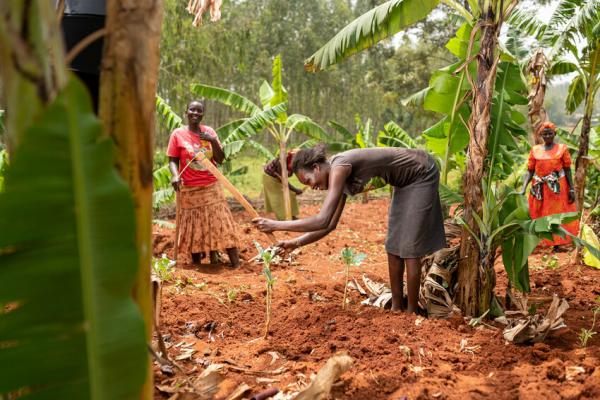
This is Fronteers Women group, an intergenerational group consisting of young and older women above age 35. They practice mixed farming of vegetables and fruits that are intercropped at the same farm, an environmental conservation action.
Older women pass on indigenous knowledge, skills, and survival strategies of rural farmers for developing sustainable agriculture that can help develop alternative agriculture technologies that conserve the environment. This knowledge is a major untapped source and may become extinct if not passed from older generations to younger ones because agriculture taught in Kenyan schools and colleges relies almost entirely on European models and applications.
Arise and Shine
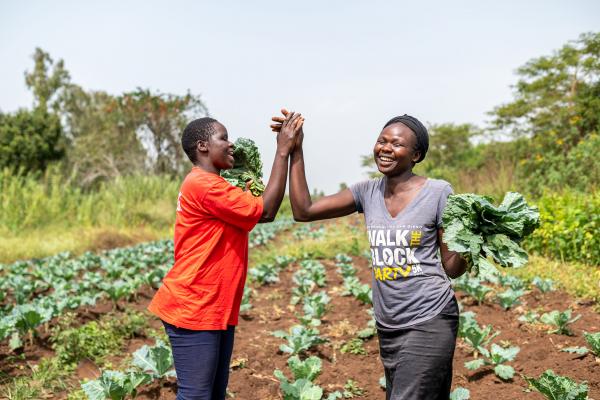
This group is called Arise and Shine, they have 15 active members. All are young women aged 18 to 35 years old. They have been affected heavily by climate change impacts that have resulted due to erratic weather patterns and prolonged droughts, making it hard to do farming activities to produce enough food.
Now the group has adapted to use climate friendly farming strategies using clean energy and a solar pump for irrigation. The group used to have to fetch water for three hours a day in order to irrigate the farm. This time has been saved by the use of the solar pump, giving them more time to engage in other economic activities to improve their income.
Alego Young Turks
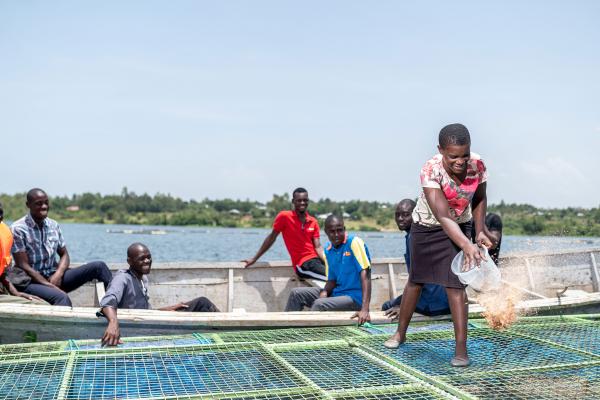
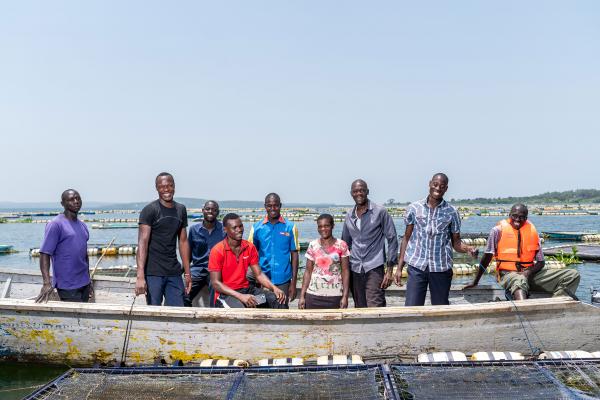
Aquaculture has been the fastest-growing sector for food production, as well as for rural livelihood improvement and agricultural income earning. The high demand for aquaculture products is expanding in Kenya due to population growth and a reduction in wild catch fish. However, it is challenging to do floating cage fish farming in Lake Victoria.
The high initial investment costs, inadequate supply of quality seeds and feed, and adverse climatic conditions make it difficult for anyone. For Alego Young Turks self-help group, however, it was a challenge that both the married and unmarried men and women embraced as they engaged in small-scale aquaculture thanks to support from the VSO’s Volunteering for Development (VfD) project the FCDO.
Alego Young Turks is a self-help group of 18 members (12 female and 6 male) based at Anyanga Beach in Bondo Sub-County in Siaya County. Formed in 2009, it started a safe space to address challenges such as scarcity of fish within the locality, sexual exploitation and discrimination of women, and lack of capital to start individual businesses.
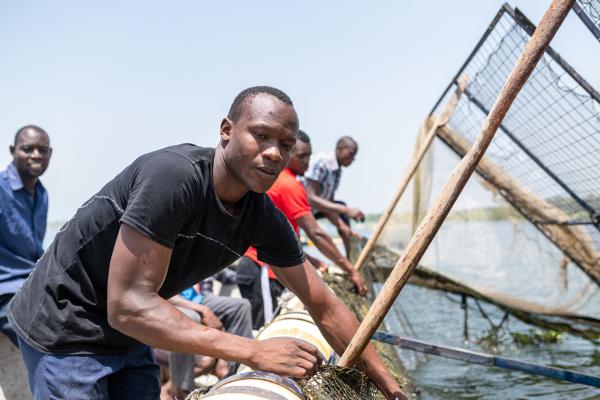
Most of the group members are youths below 35 years of age with only two members being above age 35. More than two-thirds of the group members are married and have families who depend on them. The group members all worked as either fishermen or fishmongers, but even though they all worked hard, it was tough for them to meet their daily needs with their limited income from fishing and fish mongering.
To adapt to climate change, the group protects the ecosystem by not overfishing and shifting from direct capture to floating fish cage farming. They have a small-scale fish cage in Lake Victoria and are now setting up another fish cage with the support of VSO.
DinaWe have received training on saving and budgeting which we practice at individual and group levels. Our businesses are growing, and we have started bouncing back from COVID-19. We now have individual bank accounts specifically for saving purposes. We managed to go beyond the Anyanga market and now we take pictures of our fish and put them on Facebook and WhatsApp. Now slowly we are getting calls to sell fish out of our community which was our sole market.
Member of Alego Young Turks
This has helped minimize unwanted fishing practices in the lake, keeping the environment clean, improving fishing methods, providing employment opportunities, increasing income among group members, and improving nutrition and standard of living standards among the group and community in general.
To boost their income stream, VSO donated a fish cage and a fish cooler to enable them to expand their business. They have now added a fish cage with a capacity of 5,000 fish that they established in 2020 and are expecting harvests in six months.
Once the fish is harvested, they are sold at the market price. The money earned from the sales of fish will boost the group’s savings enabling members to expand their businesses and cater to their household basic needs, school fees, and medication.
Learn more about our livelihoods work
The people VSO work with are facing multiple intersecting crisis. They are at the forefront of the climate emergency experiencing extreme weather events such as drought, floods on more frequently. Find out how VSO interventions are helping people to develop the techniques they need to build sustainable and resilient livelihoods.
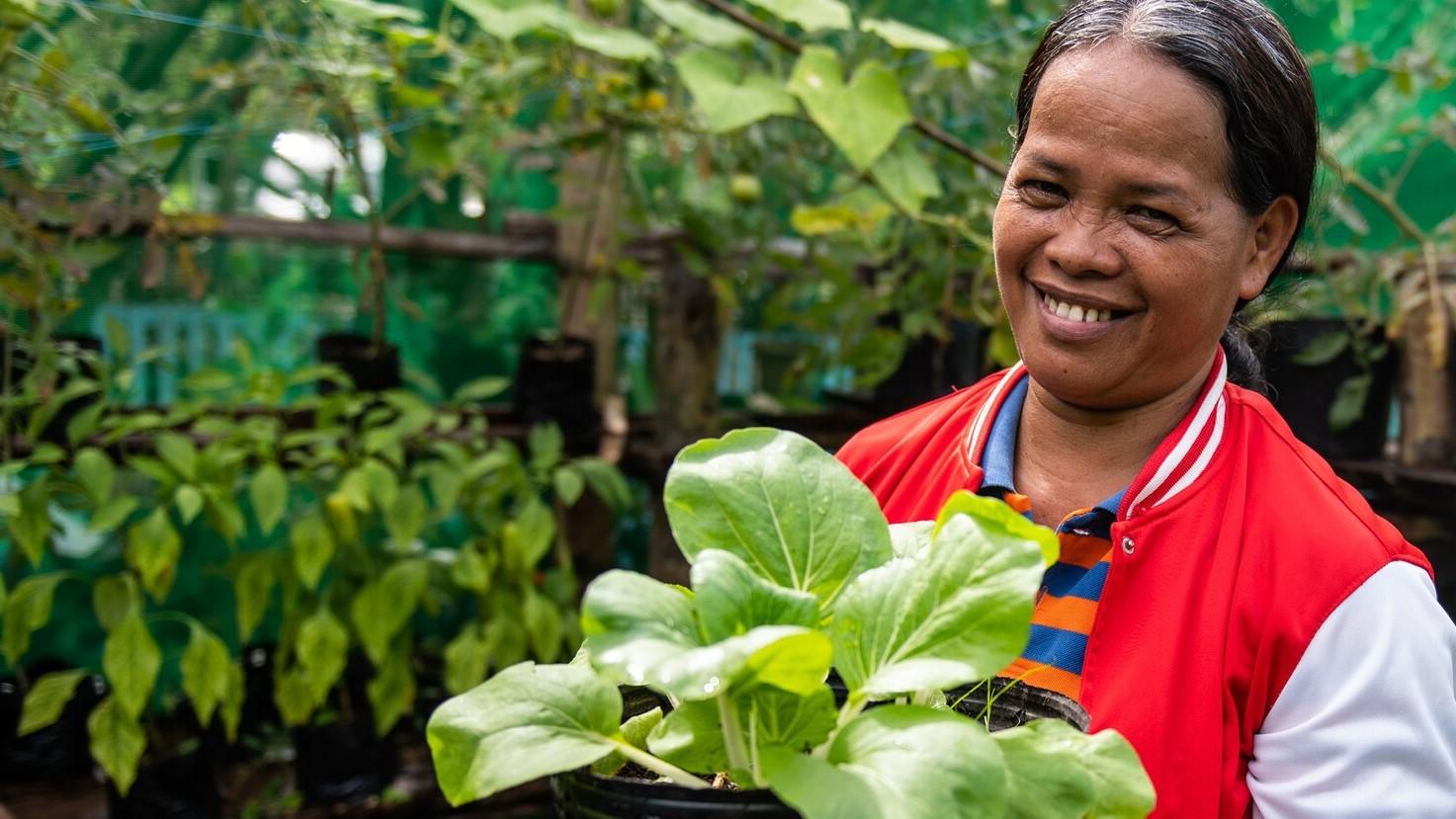
Support us with a donation
Read more
Protecting the biodiversity of the East Tonlé Sap Lake through aquaculture
Aquaculture — the farming of aquatic organisms, such as eels, shellfish, and seaweed, in a controlled environment — is transforming the lives of people like Mr Em Phat, who are living on the East Tonlé Sap Lake in Cambodia.
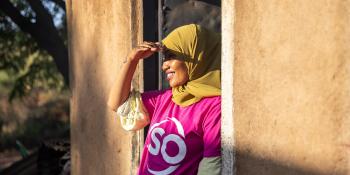
Five things women achieved this year that you might not know about
This International Women's Day, join us in celebrating the resilience of women across the globe with some female achievements you might not have heard about.
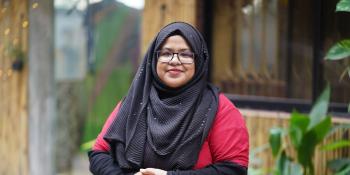
Breaking barriers: Lamia's journey of volunteering, leadership, and gender equity
Bangladesh - Lamia Tasnim's volunteering journey began in 2018, and over the course of the last six years, her passion for supporting her community has only grown.
